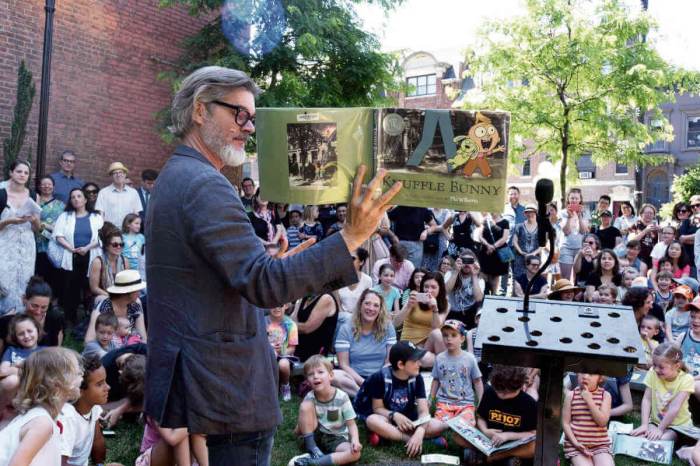By Jerry Tallmer
One thing I’ve learned about Walter Cronkite in the hours since he left us last Friday at 92. He hated his eyeglasses, as I do mine. In almost every and any occasion, but most notably the moment he had to inform the world of the death of John F. Kennedy on November 22, 1963, the first thing he did was to remove his eyeglasses, start talking, and then after a few seconds, put them back on.
Of course on that bad day in 1963 the world also saw Cronkite blink away a couple of tears as he fought — without visibly showing it — for control. But many, many, many times when there were no tears at all — the moment in 1969 that a man first walked on the moon, or all those spurts of explosive or absurd drama at one or another Republican or Democratic convention — the first thing you saw Uncle Walter do was remove his eyeglasses just as he started talking.
They probably irritated him behind the ears, as mine often do me.
The most trusted man in America — who was it first called him that? Probably (and sardonically) Lyndon Johnson or Richard Nixon, in either case, the most mistrusted man (pre-Bush) in America.
But that’s what Cronkite was, and this in the era when there were only three big national and worldwide television outlets — NBC, ABC and CBS — with CBS by far the leader (for me) in quality and truth, in a tradition that flowed all the way from Edward R. Murrow on the roofs of burning London, to Archie Bunker and Mary Tyler Moore and Bob Newhart and Maud, to the “CBS Nightly News” and its one-thousand-percent reliable anchor man, whom we knew would never knowingly serve us any bullshit whatsoever through all the wars and cataclysms and lies and disasters and brutalities and ballyhoo, home and abroad.
I learned something else about Walter Cronkite as people on the tube talked about him over this past weekend. He was the grandson of one dentist, son of another and nephew of yet another. So the world lost a good dentist when it acquired a great newsman.
There was, however, one thing I already knew about Cronkite that not everybody else had ever seen: He was, or could be, in private, a bit of a clown.
This came out on the day, years ago, that I went to interview Mrs. Walter Cronkite — Betsy Cronkite — in their town house, I disremember where, but probably the Upper East Side. Mr. Cronkite himself did not sit in. Suddenly, at the end of a gracious and vivacious hour — gracious and vivacious on her part — there was a halloo from someone somewhere far upstairs: the most trusted man in America himself.
Cronkite, like John F. Kennedy — like all the Kennedys — was a passionate sailboat man. Now, from far upstairs, three or four flights upstairs, I heard the skipper bellow to his crew, i.e. to the lady I was interviewing: “Ahoy, down there! Are we shipshape and ready to cast off?” — or something very much like that.
Mrs. Cronkite looked at me and giggled or blushed or maybe neither.
“He puts on his captain’s hat and does that every day,” she said with a Candida-type half-shrug, half-smile.
Now, all these years later, I’m led to believe that the most trusted man in America had taken his eyeglasses off as he leaned over a railing three flights up and hollered: “Ahoy, down there! Is everything shipshape?”
Because that’s the way it is, or was, once upon a time. A better time.
* * *
It was only after I had written the above that I heard of the death of Frank McCourt, at 79, this past Sunday, July 19, 2009.
So the cold and drizzle and mists and downpours of Limerick finally got you, Frank, all these years and miles later. I am desperately sorry. If there is anyone alive who never heard of the author of “Angela’s Ashes” and “’Tis” and “Teacher Man,” be it merely known that Frank McCourt, like Walter Cronkite, was a man you could trust — absolutely — whether as writer, or teacher, or playmaker, or actor (with and without brothers Malachy and Alphie), or just plain heartfelt, sensitive, tough-fibered Irish-American. He was a kind of music all his own, and to the bone. Wherever you are, Frank, play on.




































